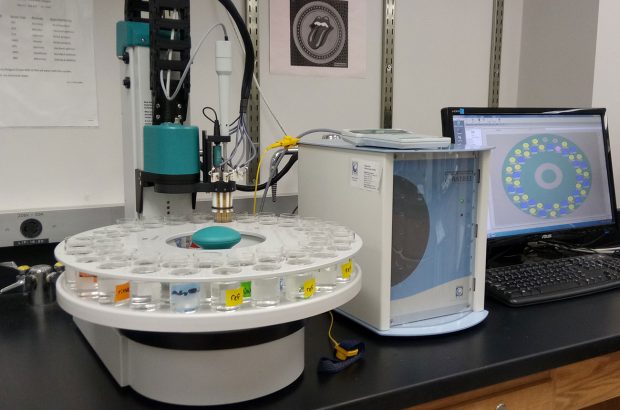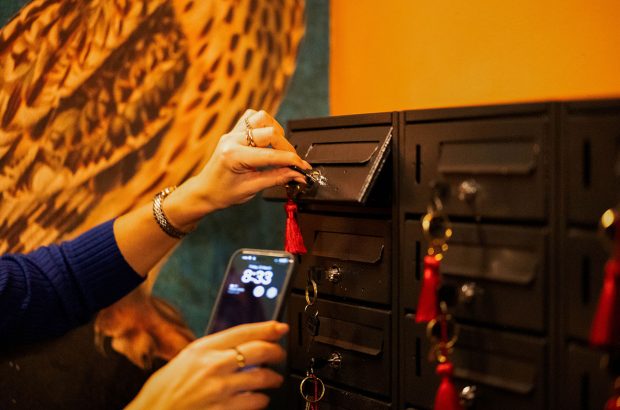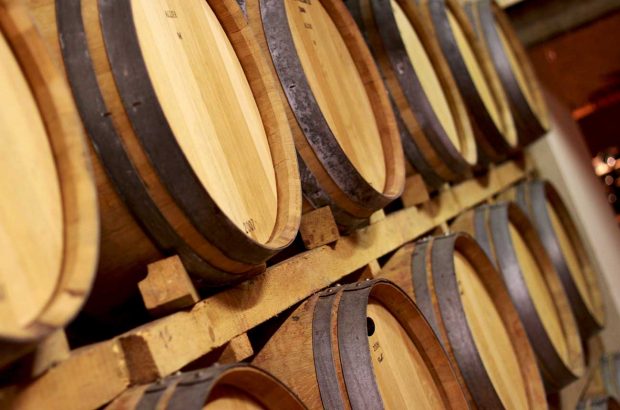Profits rule this financial PR guru’s day, so when there’s time to indulge in wine, it all comes down to pleasure, discovers john stimpfig
When I arrive early at Roland Rudd’s west London home, I’m let in by one of the private caterers who are preparing dinner. As a founder of Finsbury, the UK’s top financial public relations company with a string of bluechip clients, Rudd likes to entertain at home, mixing business with pleasure.
Guests have included prime ministers, media moguls, senior bankers and FTSE 100 CEOs. Equally, you’re just as likely to meet someone from the worlds of literature, art or opera. No wonder one high-profile magazine described him as a ‘the PR man of the moment, a social dynamo at the hub of Britain’s business and political life.’ But tonight’s dinner for 12 is more for friends and family, including his old chum and former Financial Times colleague Robert Peston, now the BBC’s business correspondent.
My time alone allows me to scan his impressive modern art collection. But it’s not all high-brow: downstairs in the family room are framed posters from Bond movies. His passion for art may be avant-garde and eclectic but when he shows me his compact, well-ordered basement cellar, I discover his taste in wine is much more old school. Here he has about 1,000 neatly tagged bottles.
The rest of his collection is stored with Armit and Farr Vintners, from whom he buys most of his wine. It has a distinctly French accent, with claret taking the lion’s share. But there is also some top Burgundy (De Vogüé and Leflaive) and an impressive selection of Champagne (Moët, Dom Pérignon and Krug).
And while I spot the odd Italian (Gaja and Sassicaia), there is a conspicuous absence of anything New World. ‘My father got me into wine in general and Bordeaux in particular,’ says Rudd. ‘He had a good cellar and I remember my parents and their friends would talk about wine over dinner. I started taking an interest as early as age 17.’
Rudd also uses our foray to select the wines for tonight’s dinner. First up is Louis Latour Corton Charlemagne Grand Cru 2002 in magnums, followed by Pichon Baron 1996. Why these two? ‘Because everyone will enjoy them,’ replies Rudd. ‘Even if they don’t necessarily know very much about wine.’
Rudd clearly does. He has some lovely older vintages of Léoville-Barton, Gruaud-Larose, Palmer, Cos and Léoville-Las Cases going back to the ’60s, some of which were given to him by his father. Then there are some serious first growths, including the ’61 Latour and ’82 Haut-Brion which he bought himself. He also has a nice stash of Mouton too, having met Philippine de Rothschild at a dinner. ‘She was terrific fun,’ he recalls fondly. But his favourite first growth is Latour. ‘I think it is really exceptional now, under [estate manager Frédéric] Engerer.’
Another perennial favourite is Palmer. ‘My late father-in-law was Ted Hale MW, who knew [former co-owner] Peter Sichel well. He took my wife Sophie and I to Palmer a few times and I particularly remember the four of us tasting the 1990 out of barrel at the château. Both Peter and Ted told me it was going to be amazing. At the time though, I couldn’t afford to buy too much of it, which is a great shame.’
‘I’m quite conservative when it comes to wine and have to admit I don’t really do the New World. But it’s not been for want of trying. When I go to the States, I’m always keen to try great Californian wine. I recently bought a bottle of Rudd Estate red for $200. It was fun to order, but I could have got more pleasure and value further down the list. I’m certainly not impressed just because a wine has a hefty price tag, wherever it comes from. So I rarely drink good claret in a restaurant, purely because it really irritates me how much they charge,’ adds Rudd.
Nor does he buy to invest – whether it’s art or wine. ‘When I buy it’s for pleasure, not profit. If I’m buying en primeur I tend to follow certain châteaux like Ormes de Pez, Lynch-Bages and Léoville-Barton, which are all good value. And every now and then, if I’m feeling extravagant, I’ll buy some Mouton or Latour – though I’d rather they weren’t quite so expensive.’
But whatever the occasion, Rudd is always happy to open good wine. ‘It makes all the difference to a meal. It makes it more enjoyable, more of an event.’ His guests have started to arrive including his father, sister and Peston, who I discover also knows a thing or two about wine. But that’s another story.
Written by John Stimpfig




